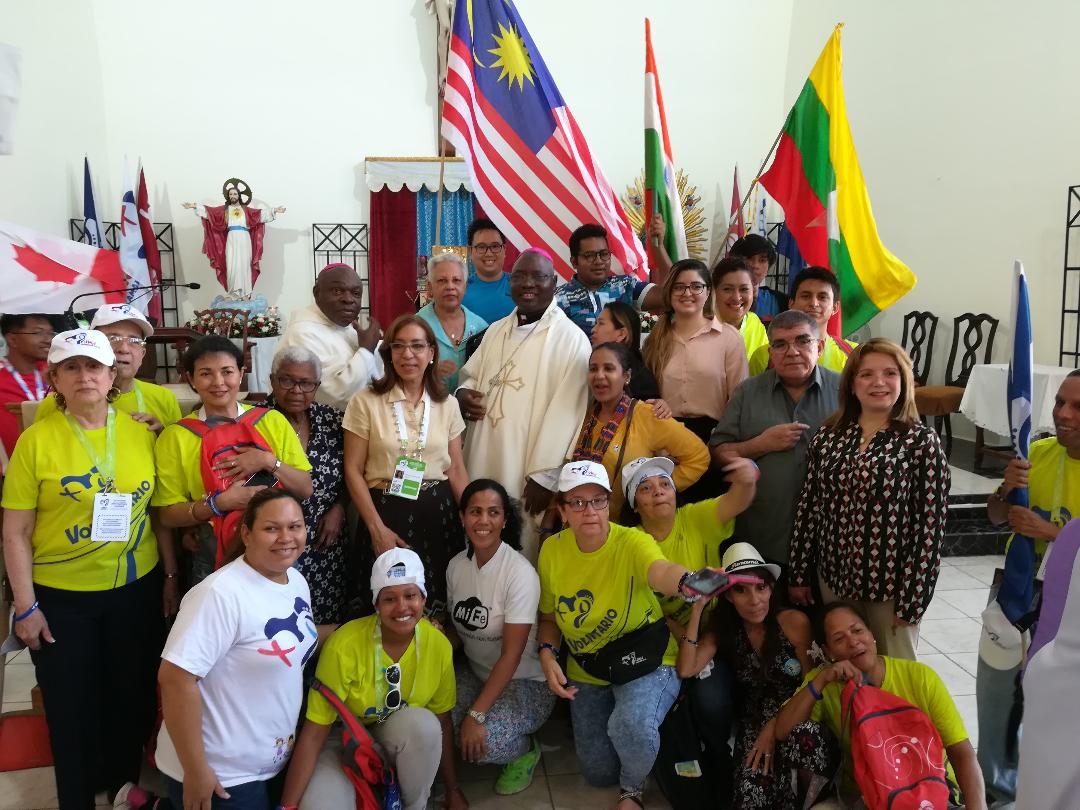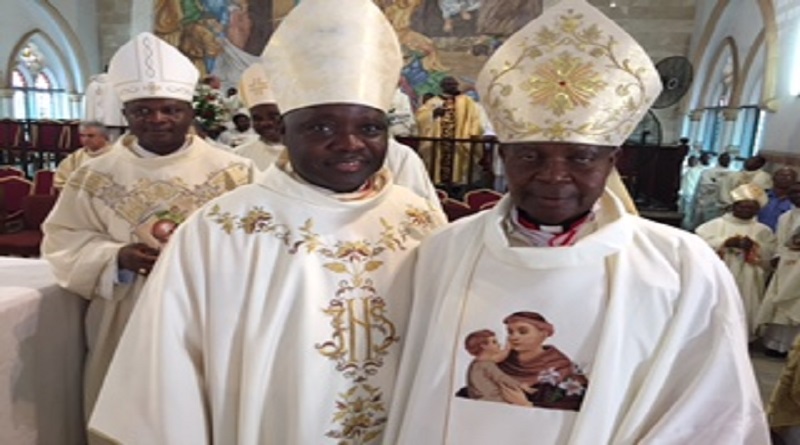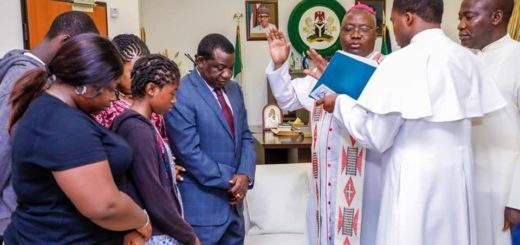THE INTERNATIONAL CONFERENCE ON ANTI-HUMAN TRAFFICKING
AN ADDRESS BY MOST REV. IGNATIUS AYAU KAIGAMA ARCHBISHOP OF JOS AND PRESIDENT CATHOLIC BISHOPS CONFERENCE OF NIGERIA ON THE OCCASION OF THE INTERNATIONAL CONFERENCE ON ANTI-HUMAN TRAFFICKING WITHIN AND FROM AFRICA TAKING PLACE IN ABUJA 5 – 7TH SEPTEMBER 2016
It is with great pleasure that I welcome you all to Nigeria for the International Conference on Anti-Human Trafficking Within and from Africa. We first heard that this conference would be hosted in Nigeria two years ago, and as a Conference, we were quite happy to play host. We are glad that this is taking place now. This for us is a sign that the bad news which Nigeria has been known for, is gradually giving way to hope and confidence. Nigeria is a beautiful country of more than 170 million people, about 25% of whom are Catholic. There are 54 ecclesiastical jurisdictions, 9 of which are Archdioceses. The Catholic Bishops Conference of Nigeria is pleased to support its agency, Caritas Nigeria, which is a member of the Caritas Confederation and a member of COATNET (Christian Organisations Against Trafficking in Persons Network), to carry out its relief and humanitarian mandate, which also addresses this new slavery.
The slave trade, which was practiced in the past centuries, is the foundation upon which human trafficking today stands. With the promulgation of laws against slave trade in 1804 by the British and by the United States of America later in 1820, trading other human beings as commodities gradually faded into history. Unfortunately this new slavery in the form of human trafficking has taken over, with many criminally minded individuals establishing rings and cartels which exploit the prostitution of others. In Africa alone hundreds of thousands of persons are trafficked annually. A whopping 79% of the total number are sexually exploited, the victims being mostly women; 21% of those trafficked are for forced labour , the majority being males. A disturbing fact is that in parts of West Africa the majority of those trafficked are children below the age of 18. This conference must find ways of ending child labour in all its forms.
I join my voice with Antonio Maria Costa of the United Nations Office on Drug and Crime (UNODC) to state that ‘After much neglect and indifference, the world is waking up to the reality of a modern form of slavery. The public and the media are becoming aware that humans prey upon humans for money. Parliaments are passing appropriately severe laws. The judiciary is facing its anti-slavery responsibility, with more prosecutions and convictions. Civil society and (to a lesser extent) the private sector are mobilizing good-will and resources to assist victims.’ Over the years Nigeria too has made commendable strides in curbing human trafficking. In 2000 Nigeria became signatory to the Transnational organized crime convention whose trafficking protocol in article 5 enjoined states to criminalize practices and conducts that subject all human beings to any form of exploitation, which includes sexual and labour exploitation.
I commend your efforts over the years as Caritas in close collaboration with COATNET for having stood for the victims of human trafficking through policy advocacies, psychosocial support and strengthening the media of action against this inhuman trade. I urge you to always apply yourselves to fostering international cooperation and facilitating worldwide solidarity to assist the victims, raising public awareness about this scourge, and advocating for effective anti-human trafficking policies that place the trafficked person at the heart of policymaking. We stand on the saying that ‘Until the door of justice that shuts against one person is opened, there will be no fairness to all’.
I therefore call on the Nigerian government to look at the issue of trafficking in persons as a national disgrace and take urgent and lasting steps to deal with the root causes. This is especially in light of the fact that recent reports claim that 80% of Nigerian girls who arrive Italy, do so for sex trafficking purposes.
In 2003, Nigeria established the National Agency for Prohibition of Traffic in Persons and other Related Matters (NAPTIP). Since its establishment NAPTIP has expedited on matters that relate directly to trafficked persons in Nigeria by establishing a working synergy with Nigeria’s Customs service, Immigration Service, the United States, United Kingdom, ECOWAS member states, Women Trafficking and Child Labour Eradication Foundation (WOTCLEF), and other countries and related departments. In November 2008, the late president Umaru Musa Yar’Adua also promulgated a national policy on protection and assistance to trafficked persons in Nigeria. Through counselling, psychosocial support, provision of temporary shelters, medical and legal services, this policy seeks to support and rehabilitate all victims of human trafficking. These efforts, taken together with those of other Agencies both private and public, are indicative of seriousness on the part of government. But in the light of current realities government must show that NAPTIP is not one of those agencies that make up the number. To truly show seriousness, government should begin by confirming or appointing a substantive person to head NAPTIP and allocate resources as appropriate to deal with the issues.
State governments whose citizens are notorious victims of this trade should study the cultural and economic factors leading to this phenomenon and focus on addressing them. These factors may include poor access to quality education, poor access to micro-finance, the collapse of family values, leading to permissiveness, and of course the value attached to material wealth no matter its source.
This is a time also for the international community to rise up in support of Nigeria. Although Nigeria as a nation has mismanaged the opportunities she had with the oil boom and did not build enough infrastructure to diversify the economy, now that the economic depression is an additional stimulus for those who perpetrate this inhuman menace, the world should rise up and see this matter for what it is, as the new slavery, and do all that is possible to assist Nigeria to address the causes. As we all know, Nigeria already was greatly challenged with Boko Haram terrorism. Lots of resources that would have gone into the development of the nation ended up being used for fighting insecurity. Nigeria is broke and many constituent states have not paid workers’ salaries for months. It would be a great sign of solidarity for the nations of the world to go beyond repatriating victims and investing in uprooting the fundamental causes.
Once again, welcome to you all and thank you for listening.




